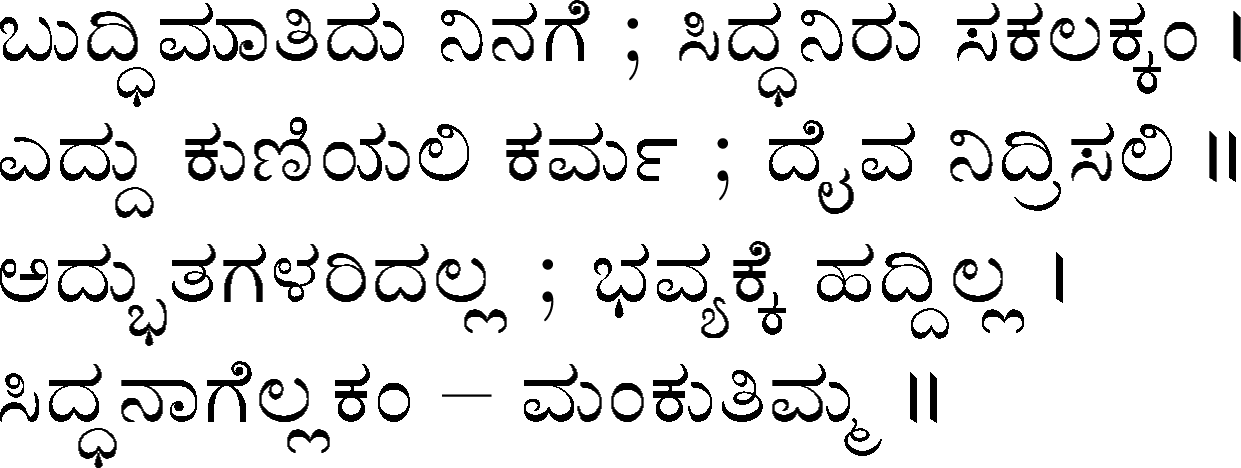Devanahalli Venkataramanaiah Gundappa - better known as D V Gundappa or better yet just by his initials, DVG - was a writer and philosopher and a stalwart of Kannada (one of the south Indian languages) literature. While he authored numerous works - Antahpura Geete, Umarana Osage, Jnaapaka Chitra Shaale, Jeevana Dharma Yoga, MaruLa Muniyana Kagga, Samskruti, Vasanta Kusumaanjali and more, I believe that Mankutimmana Kagga (loose translation: Dim Tim's Rigmarole) stands out as being most familiar to the masses. Published in 1943, Mankutimmana Kagga (or just Kagga) is a collection of 945 standalone 4-line poems (i.e., muktaka) that conform to a specific grammar rule (i.e., aadipraasa - the second letter in every sentence of a given poem is the same or its variant). Their elegance and beauty, to me anyway, is that the scope of their meaning and one's understanding in turn seem to grow with one's experiences in life.
Back in the early years of this millenium, Linux OS didn't necessarily
have a reliable presentation platform forcing me to use the Microsoft
PowerPoint. To say that the Microsoft's Equation Editor produced less than
elegant-looking expressions was an understatement. Andreas Reigber's
tex2im tool was a big help in producing LaTeX expressions -
mathematical or otherwise - as JPG/PNG images and making my PowerPoint
presentations a lot more crisp and clean. Thanks to Dr. C D Clark, the tool
is now available as a
Python utility in GitHub.
While searching for ways to typeset Kannada text in LaTeX, I had come across
KannadaLaTeX - project funded by Leelavati Trust. I was familiar
with the project lead, Dr. C S Yogananda, through a lecture he gave in
Bangalore Science Forum
(in National College Basavanagudi – titled Prof. Harishchandra –
Physicist Turned Mathematician on 27th July 2000) and through his
work/writings in
Resonance, published by the
Indian Academy of Sciences.
Being a fan of DVG's work, specifically of Kagga, I was then
looking for an online resource to periodically review various verses. Not
finding any and realizing that the support for rendering Kannada font in
web browsers was minimal to non-existent, I combined the two projects -
rendering LaTeX expressions as graphics and typesetting Kannada in
LaTeX - to typeset, compile and produce all 945 verses as web-friendly PNG
images over the next few years. The project was completed and the final
verse, #945, was published on 29th August 2010. Sometime in early December
2020, the project files were restored from an old SVN repository into
GitHub, higher resolution images were generate using tex2im
(Python utility) and incorporated into my journal with originally published
dates.
